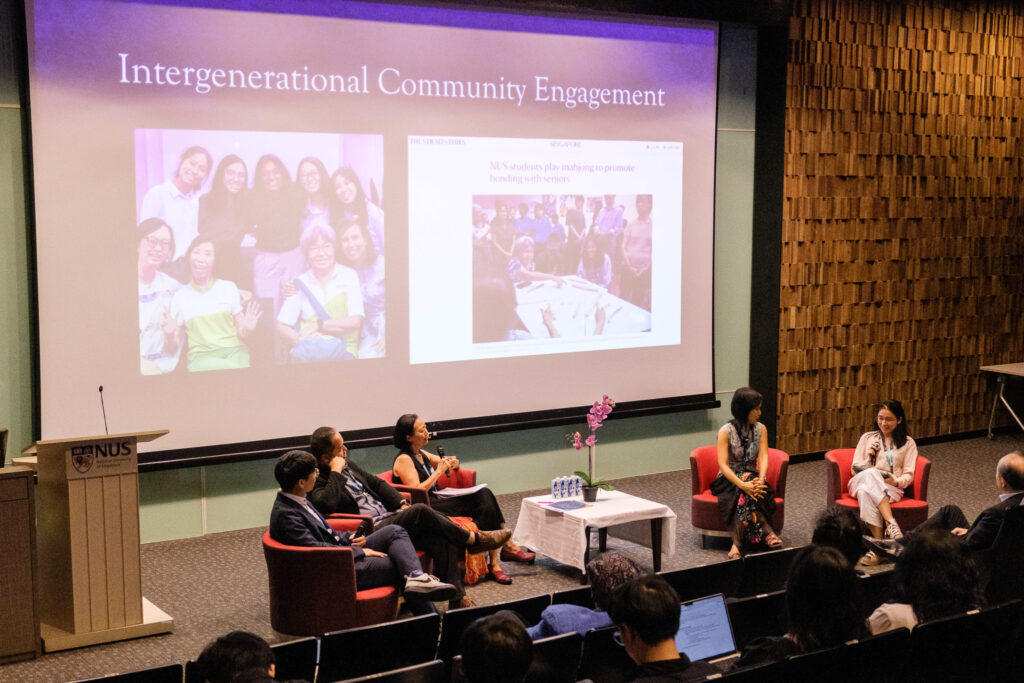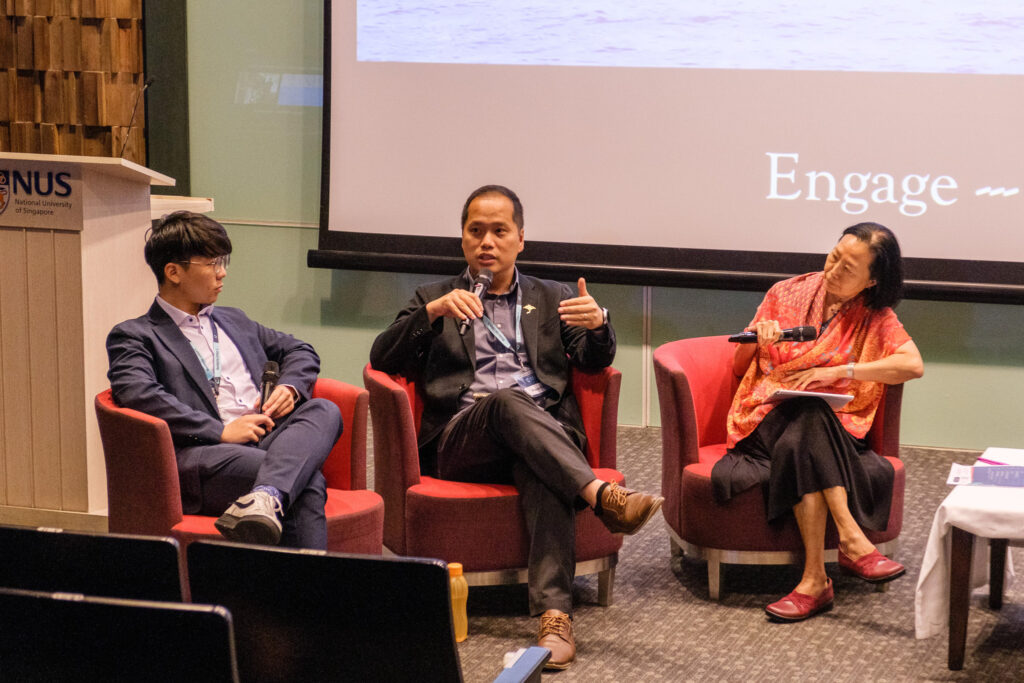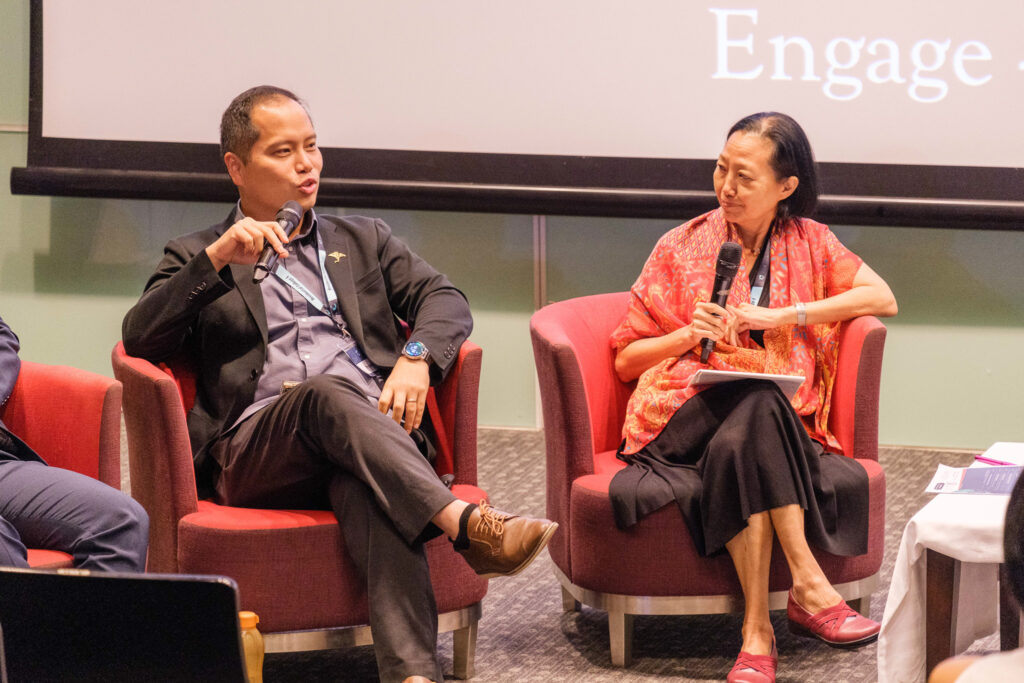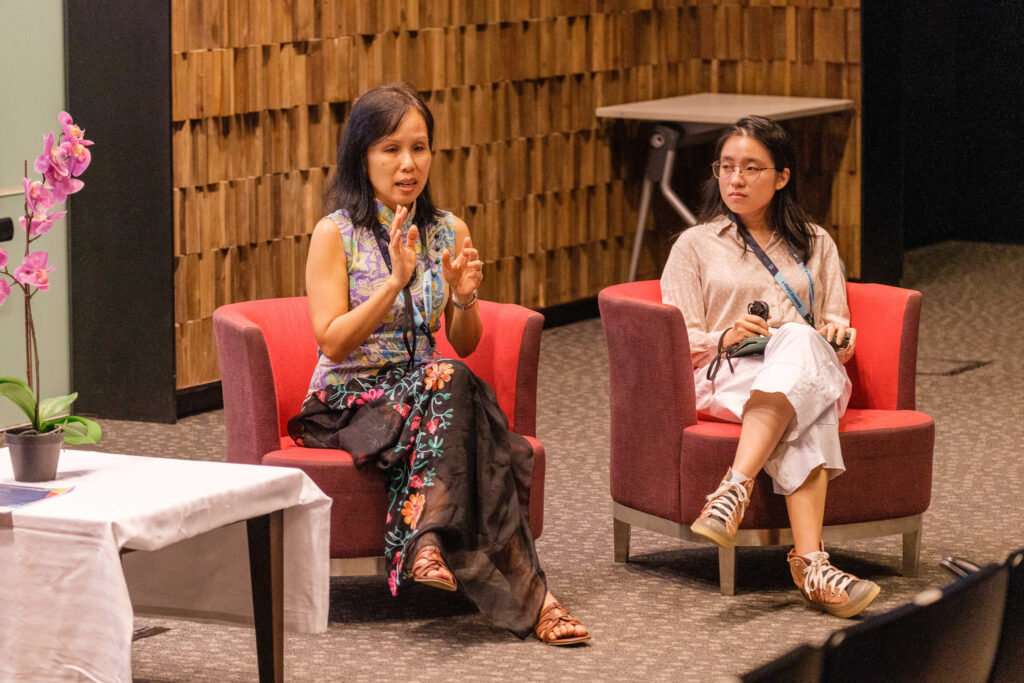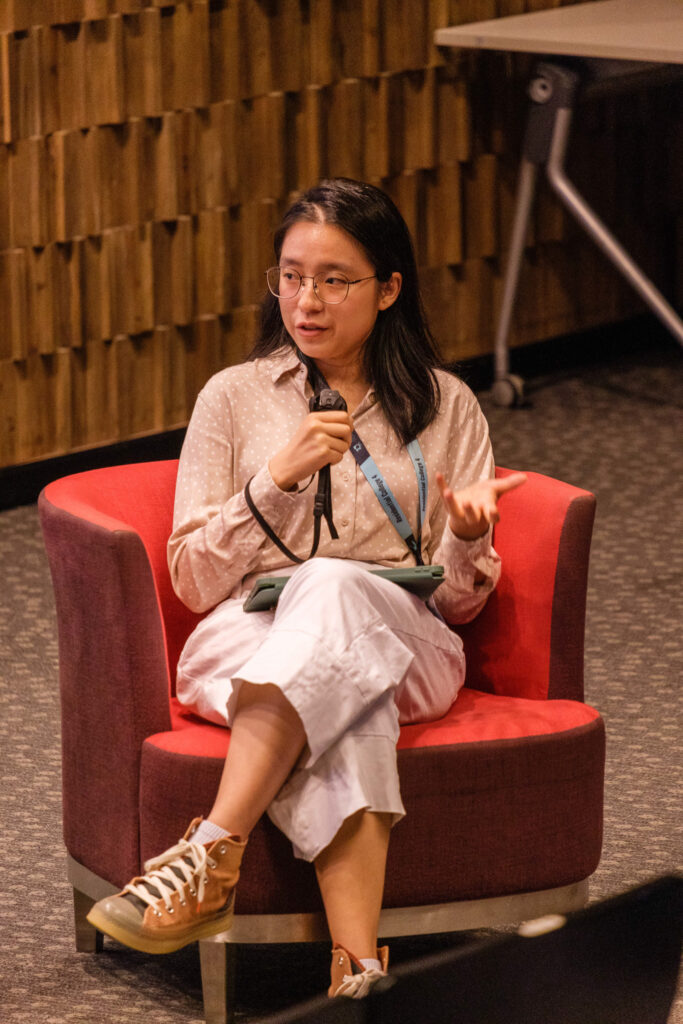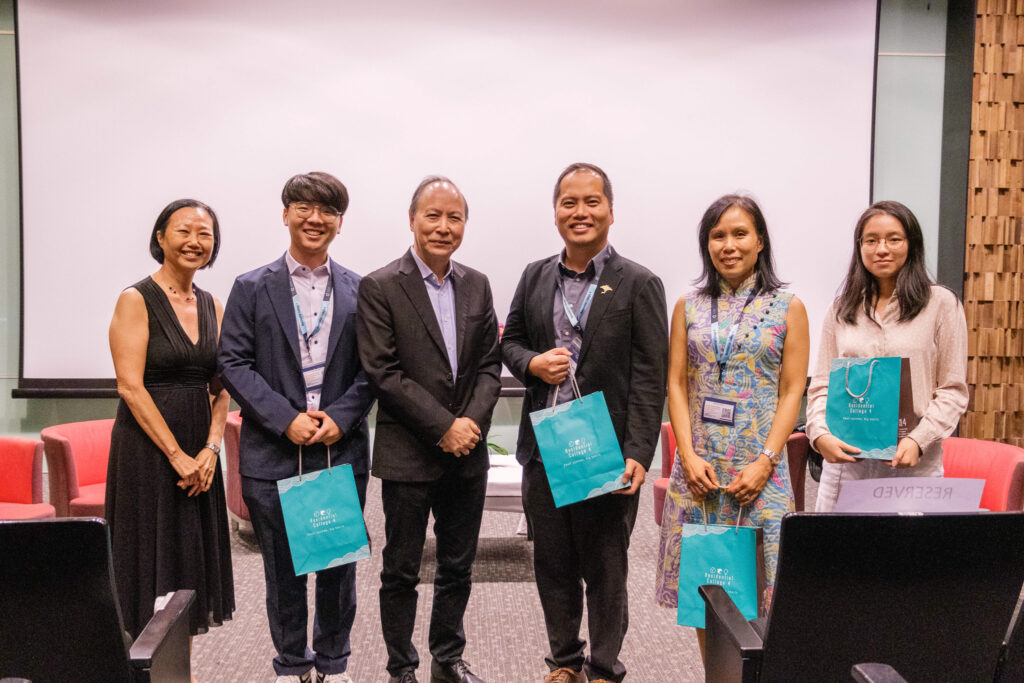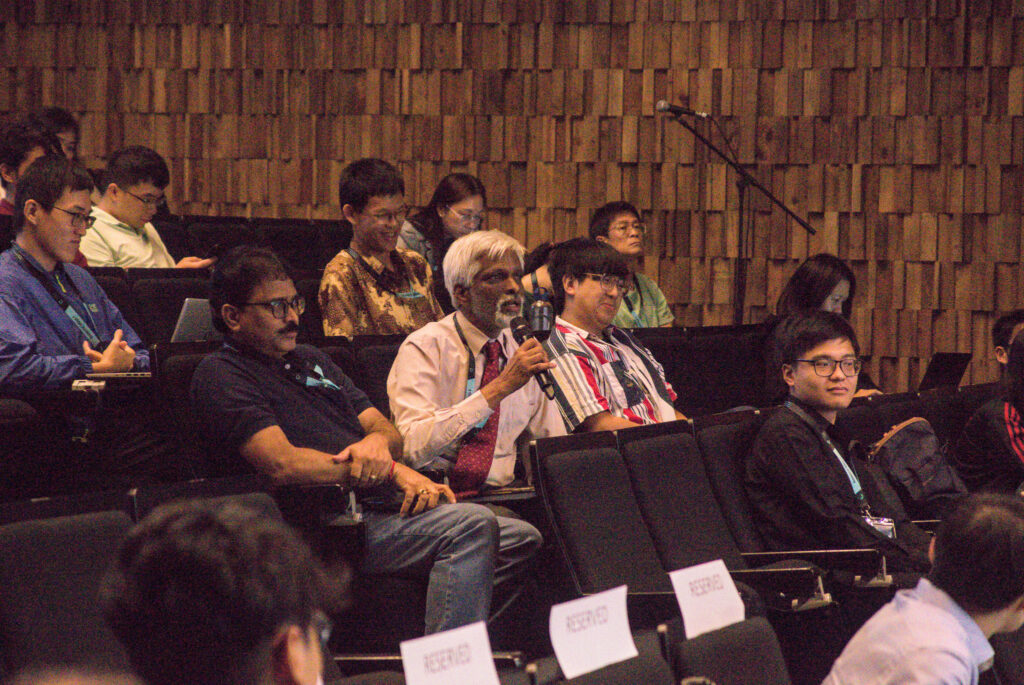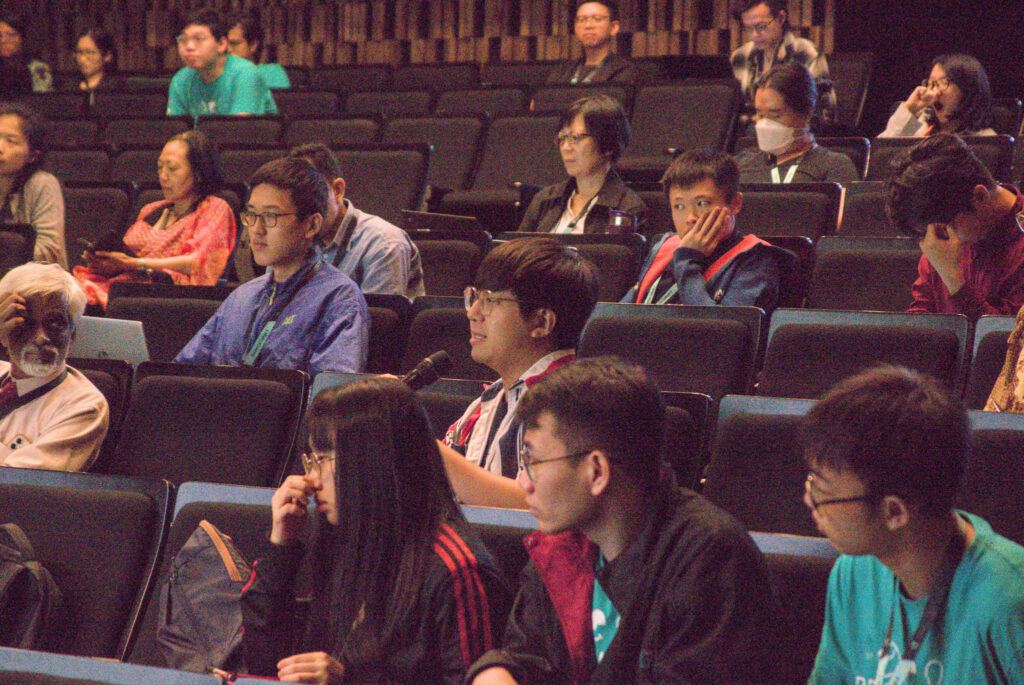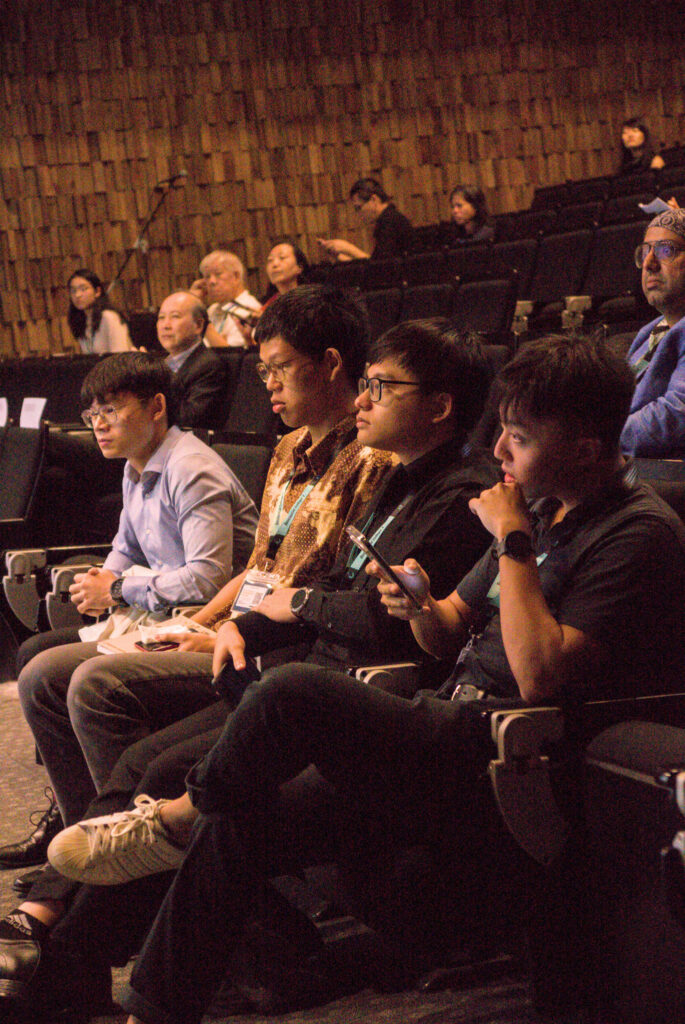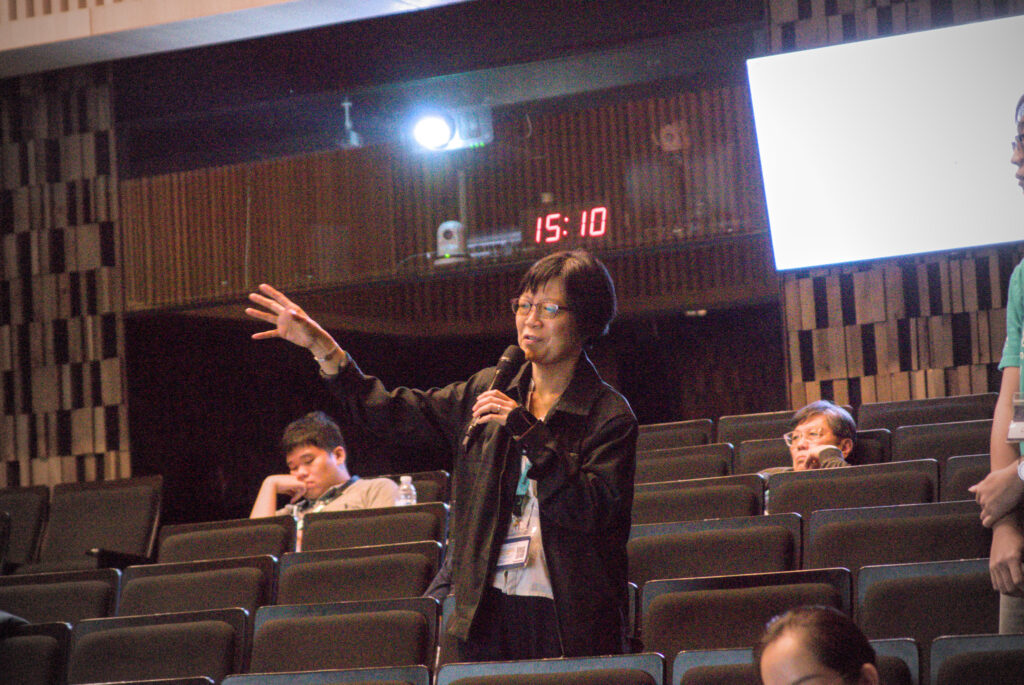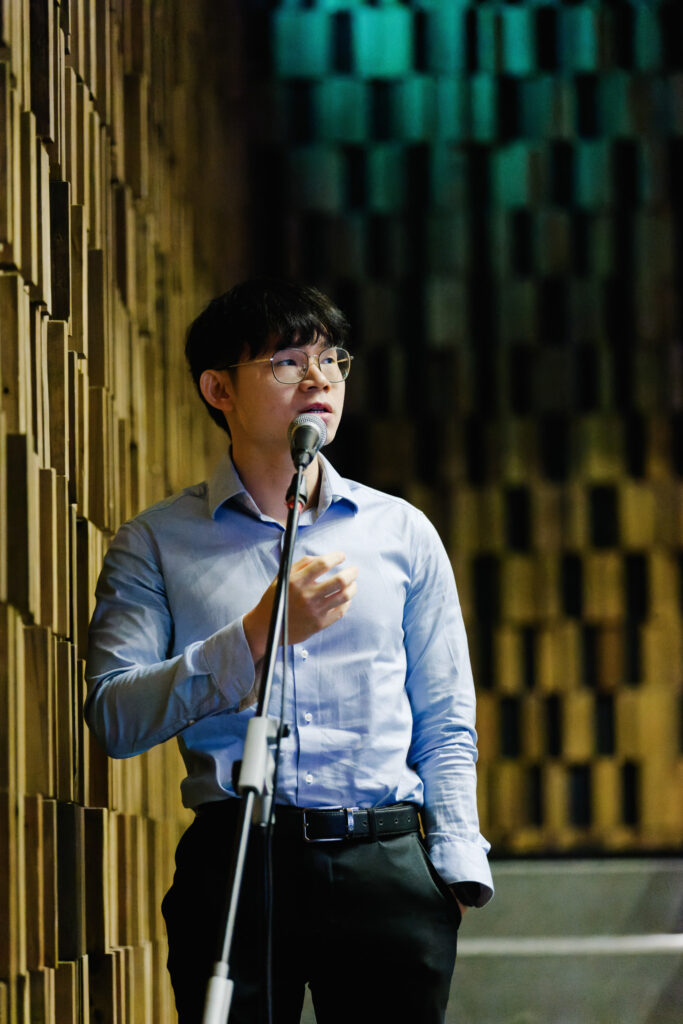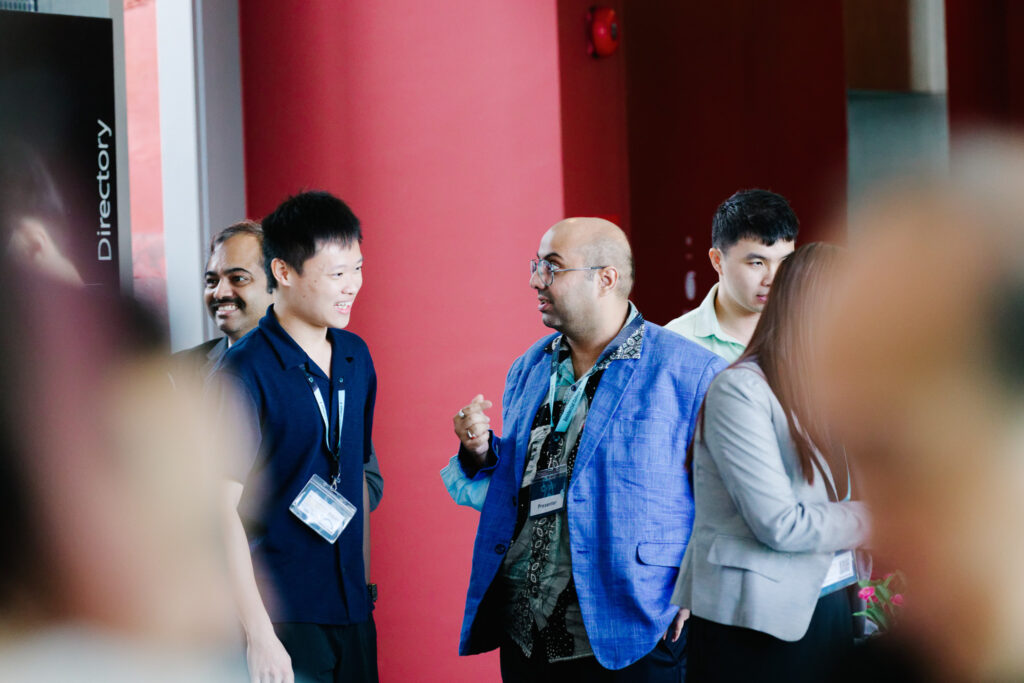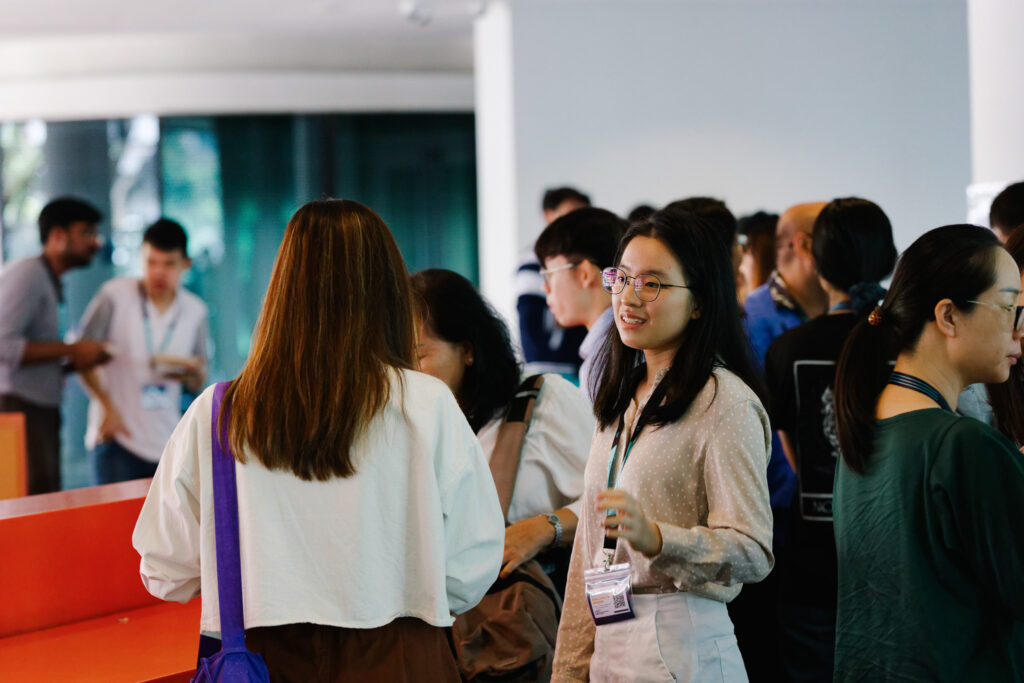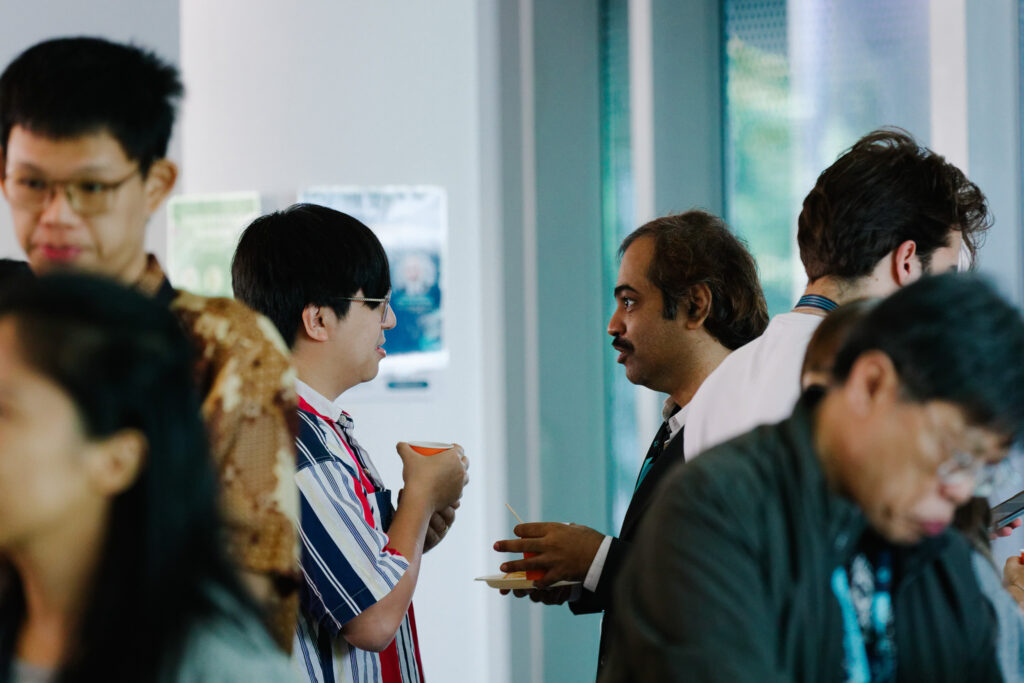RC4: A Star Was Born!
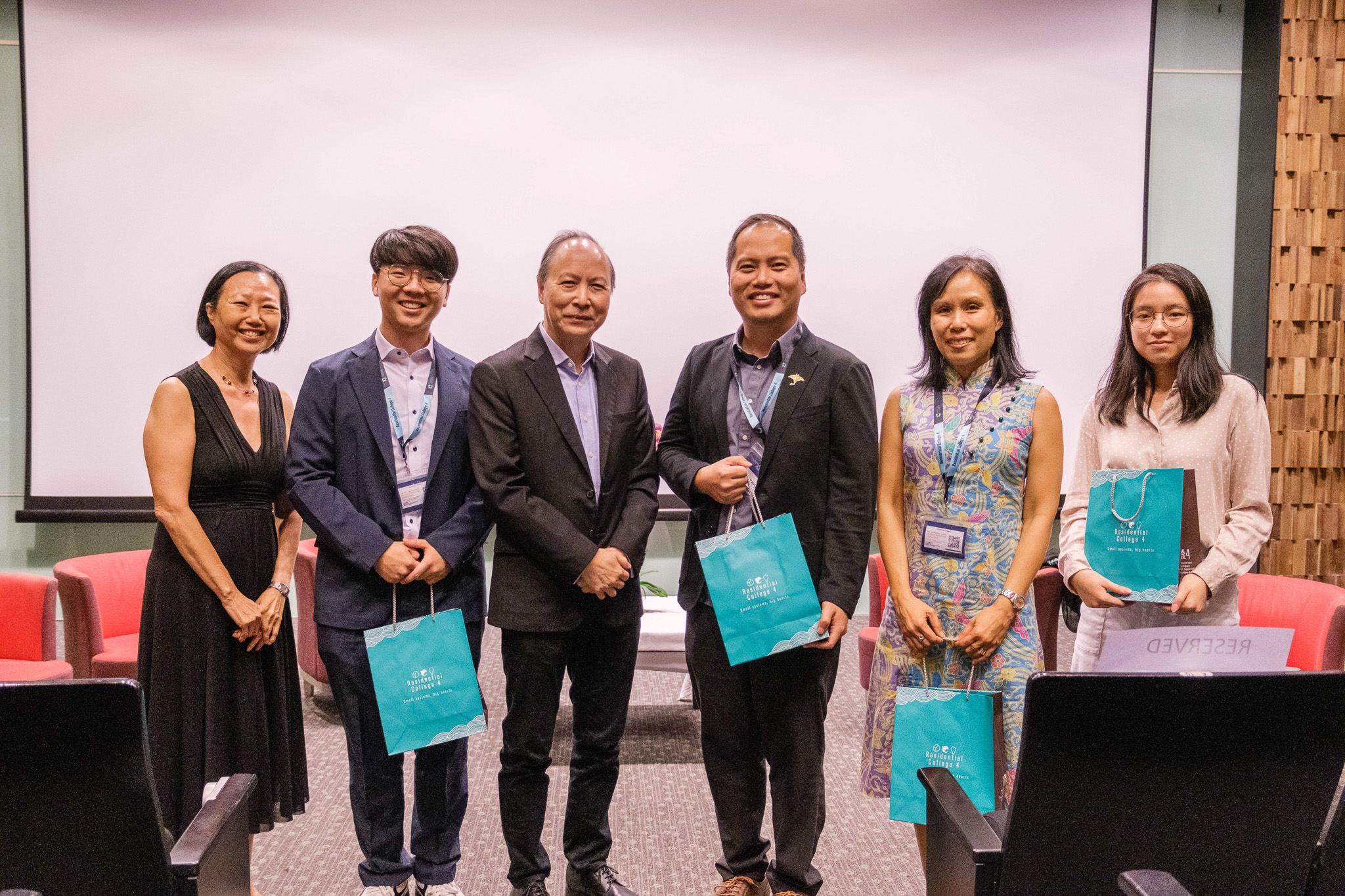
From its humble pilot years to RC4's 10th Anniversary Symposium, RC4 Fellow, Assoc. Prof. Chng Huang Hoon (on the far left) reflects on the 10 years of growth and impact in this heartfelt reflection.
RC4: A Star Was Born!
19 October 2024
I was there when a fourth residential college was being planned; I'm still here today to see its progress. What a journey it has been for Residential College 4!
The year was 2014. I was the Associate Provost (Undergraduate Education) when RC4 first started. In fact, I was already involved in planning for the UTCP curriculum since 2009 as Director of Centre for Development of Teaching and Learning. I was tasked by the then-Vice Provost, Professor Tan Thiam Soon, to devise the details of what we still fondly call “the third module” (after the establishment of the first two UTCP modules, namely, the Junior Seminar and the IEM). The ‘third module’ aka “Senior Seminar” is now an entrenched feature of the UTCP experience.
The College's theme, Systems Thinking, System Dynamics (STSD) took a while to fly as students were initially hesitant about this new curricular emphasis. Kudos to the tireless work of Founding College Master A/P Lakshminarayanan Samavedham, his team, and the student leaders; and the continued effort of current Master Peter Pang and his team, many students are increasingly proficient in articulating the spirit of what thinking in systems means.
The college started with just 60 students; it is now 600-student strong. I’ve been affiliated with RC4 as a teaching fellow since 2016, but only resume more active teaching in RC4 from 2021, appropriately teaching a “third module” on leadership to RC4 students. I will never cease to marvel at how much this college has grown – from being the relatively unknown college to the college of choice among today’s prospective students. RC4 students and alumni, including Low Yin Yi, Lexdan Lim, Cheng Huimin and Danish Lukawski, amongst many others, are already living the spirit of the College's "Small systems, big hearts," making their impact in the Singapore community and beyond.
RC4 TURNS 10!
Fast forward 2024 – the college is now 10. Led by Dr. Naviyn Prabhu Balakrishnan, alongside Dr. Navarun Varma and Dr. Cindy Fu, advised by Founding Master Professor Lakshminarayanan and current Master Associate Professor Peter Pang, and supported by Tan Si Min (admin support), students and alumni, RC4 celebrated its significant milestone with the 10th Anniversary "Interconnected Horizons" Symposium on 19 October 2024.
The plenary speakers Professor John Sterman (Massachusetts Institute of Technology) and Professor Peter Hovmand (Case Western Reserve University) and the 4 panels on policymaking, technology, community engagement and a student panel underscored how STSD enables us to understand and mitigate 21st C grand challenges like pandemics, water and food shortage, and climate change. For me, the stars of this Symposium are the student presenters. These student presenters impressed me by going beyond the clinical explication of systems theory, methods and solutioning of real-world challenges; they spoke with authenticity and empathy that embodied the college’s theme of “small systems, big hearts”. Looking on as someone who started out as a planner in 2009 and now as a teaching staff in 2024, it is hard to describe how much pride I feel to see how the RC4 leadership, teaching team and the RC4 student body have realised the RC4 vision, first proposed by Laksh a full decade ago.
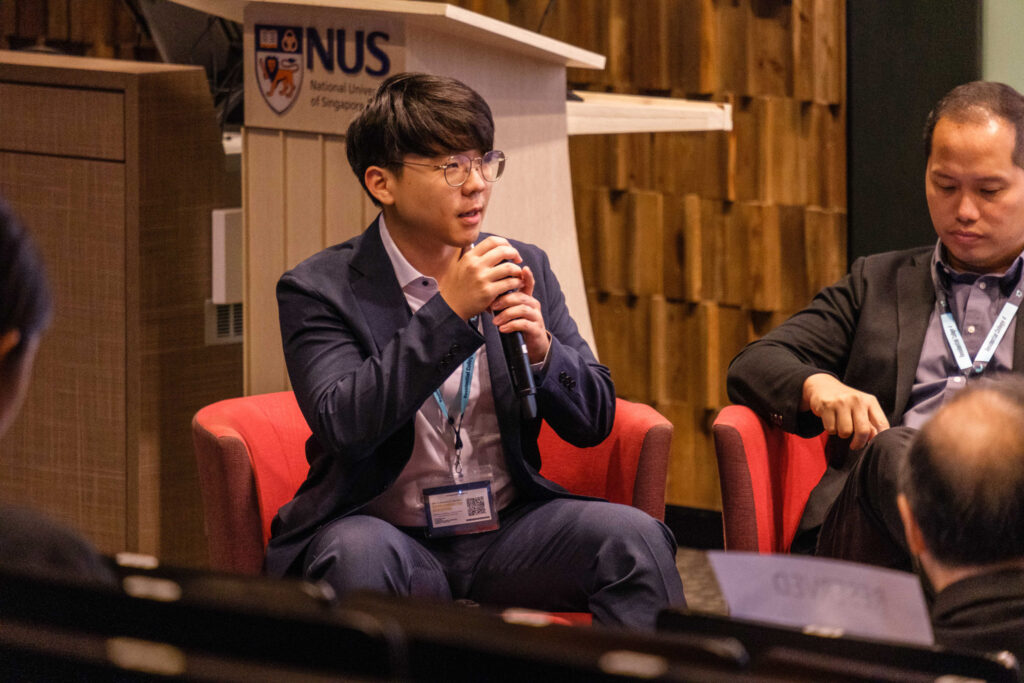
Alumni Daniel Lee at the Community Engagement Panel during RC4's 10th Anniversary Symposium.
At the Symposium, I moderated the Community Engagement panel that featured 4 brilliant, big-hearted systems thinkers – alumnus Daniel Lee, student Martha Soetedjo, colleagues Lynette Tan and Toh Tai Chong (CAPT). Daniel worked on Group Model Building in his RC4 student days. He said GMB "leverages on the power of collective wisdom to decode/unravel complex systems & problems; empowers communities to create & contribute their own models to give a more comprehensive, unified model to represent the system." GMB is thus about co-created solutioning, made possible through open conversations with diverse stakeholders, a quintessentially participatory community-based approach to finding solutions. Daniel's work has resulted in the establishment of a peer support programme and a wellness space called "Oasis" in RC4 to enhance stress management for RC4 students.
As for co-journeyers Martha and Lynette, learner and teacher embarked on "Rethinking Age(ism)", to seek asset-rich approaches to bridge the intergenerational divide. Through an exchange of mahjong and digital skills, 21-year-old youths and 82-year old elders taught and talked with one another, establishing a bond that many youths have neglected on their own home grounds – with their parents and grandparents! Martha said, "community-based system dynamics is about mitigating social challenges like the intergenerational divide by focusing on people, values, stories & experiences" – this learning experience has taught her the value of stories and conversations and has encouraged her to unravel the ones within her family.
STSD or community network-ing has their impact felt beyond RC4 and Singapore. Students have gone to Myanmar, Thailand, the Himalaya hills and in Tai Chong’s case, to Timor Leste. Tai Chong observed the need for trust building and respect when engaging communities. Putting aside his own priority for marine conservation, his interaction with Timorese Mana Candidas taught him that “Working with the community requires us to expect the unexpected" and to respect local needs. Someone like Mana Candidas embraces an entrepreneurial spirit and has expressed desire to scale up the village's coconut oil production. This has reminded Tai Chong that the important first step for community development is "to actively engage and listen to community aspirations and needs. Only then can we lay the foundation of trust and rapport."
STSD, I have learnt through this Symposium, is not just about causal and feedback loops; it is primarily about people and their life challenges, and how we can contribute to alleviate those challenges for a better world.
CONCLUSION
This RC4 success story is only possible because of inspirational and visionary leadership and sustained hard work. Founding Rector Choo Chiau Beng, Founding Master Laksh, current Master Peter Pang, and the NUS leadership are the systemic nodes that reinforced one another to introduce an important problem-solving educational frame to augment RC4 students' learning. Master Peter Pang has further infused another dimension to take STSD to the next exciting level, towards entrepreneurship & innovation. It's clear that while the College's physical capacity has already been reached, it's intellectual capability and leadership will continue to grow in service of all current and future RC4 students.
Quite simply, all the struggles of the past decade have been worth every drop of sweat. It is the truly community effort of small systems and very big hearts that we are seeing here in the RC4 journey.
I was there when RC4 started; I am here today to say, "Happy 10th Birthday, RC4. Feeling immensely proud of you, RC4!"



